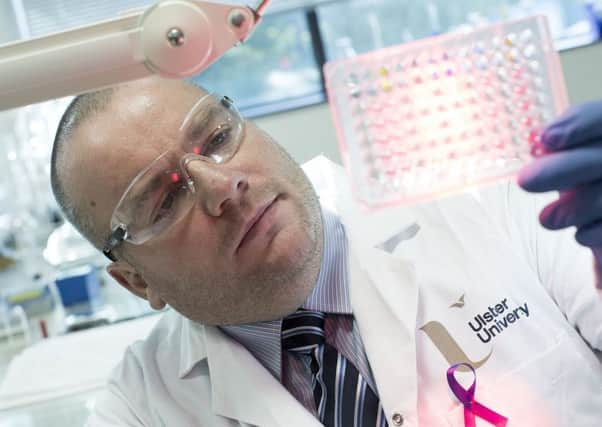Ulster University pioneering improved pancreatic cancer treatment


Pancreatic cancer is the fourth most common cause of cancer-related deaths globally and has the worst survival statistics of the 21 most common forms of cancer, with only 3% of patients surviving five or more years after their initial diagnosis.
While other forms of cancer have seen survival rates improve significantly over the past four decades, the survival rate for pancreatic cancer has remained unchanged.
Advertisement
Hide AdAdvertisement
Hide AdLast year, Ulster University scientists identified a new therapy that can selectively target pancreatic cancer tumours using microbubble technology combined with harmless sound waves.
This novel combined therapy was found to spare healthy tissue and reduce the side effects of conventional treatment, as well as deliver improved reductions in the size of the most common pancreatic tumour known as Pancreatic Ductal Adenocarcinoma (PDAC).
Now, a new Ulster University study, in partnership with the University of Oxford and funded with £180,000 from the national charity Pancreatic Cancer Research Fund (PCRF), will investigate if the microbubble technology can provide a similar boost alongside traditional radiotherapy treatments.
Ulster University’s Professor John Callan said: “It is well known that oxygen levels in pancreatic tumours are extremely low and certain cancer treatments require a good supply of oxygen to be effective. Last year, we demonstrated that by combining our microbubble technology with ultrasound we can help deliver oxygen to pancreatic tumours and help improve oxygen levels in the tumour.”